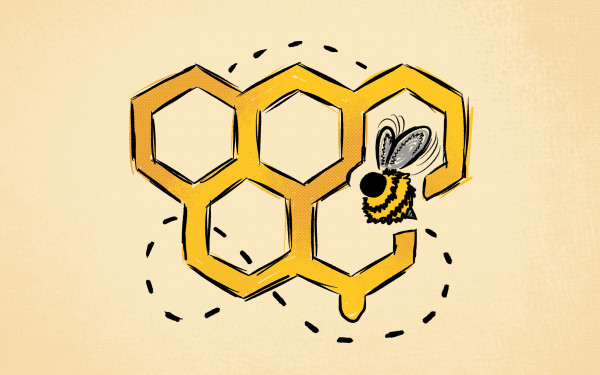Not Voting Is the Worst Option
Why You Should Go Out to the Polls on Monday
On Oct. 1, Quebec residents will be called to vote in the provincial elections.
For those of you who can vote this time around, I urge you to do it. I write this as a reaction to some people trying to justify their decision not to vote.
Not voting because one does not follow politics, does not read or watch the news is one thing.
Participation in the Quebec elections have historically hovered between 70 and 80 per cent. Full participation seems like an unrealistic objective even in countries where voting is mandatory, like Belgium (89 per cent in 2014) or Mexico (63 per cent in 2012), where a refusal to participate can lead to fines, penalties or both.
Meanwhile, in places like Quebec, where voting isn’t mandatory, expecting full participation is simply unrealistic because there will always be people who lack interest, for better or for worse.
Some people otherwise invested in politics and with at least basic knowledge of current events are willing to make the argument that non-voting is the right thing to do, and they cite various reasons to defend their point. Some of these are often faulty and most of the times rely on an internal, self-evident logic, which in the end serve nothing but to rationalize inaction.
Let’s go over two of them.
The false equivalence
“Whatever party wins, it’s all the same. I don’t want to vote for the least bad option.”
What exactly is being said here? That all parties hold the same beliefs? Or that their beliefs don’t matter since they act the same once in power?
This argument relies on the fact that, in a contemporary democracy, contending parties fight for the voter’s confidence. Like a salesperson working under pressure, they would say anything in order to get you to buy into their story and, in the end, buy their product. In politics, this takes the shape of campaign promises: some will be kept, and many will not be carried out, for various reasons.
This can give the illusion of equivalence between parties: by acting in similar ways (e.g. making unrealistic campaign promises, belittling or ridiculing contending ideas, courting the vote by exploiting emotions, etc.), the public can grow insensitive to what actually separates them by putting them all in the same basket. By focusing on the form of their message and not on their content, we lose sight of the consequences the different outcomes.
While it is true that elections often seem like a carnival of deceitfulness, it doesn’t change the fact that contending parties do support different sets of ideas. Not only do they think in different ways, but more importantly, if elected, they will probably act in ways aligned with these beliefs.
These actions have profound impacts on society.
They might not do everything they said they would. They might not turn out to be so different after all. But even small differences in policy can have deep repercussions on society. In Quebec, this is even truer in areas like the environment, foreign policy, language and labour laws, where opposing parties traditionally had substantial divergences.
The same goes for the current election cycle. Does Québec Solidaire and the Coalition Avenir Québec have the same remedies to our public education woes or public transportation? Do the Parti Québécois and the Liberals talk about Quebec’s place in Canada in the same way?
Different parties, different outcomes. And those who determine the outcome are the ones who go out and cast their vote.
Noam Chomsky identified a moral issue regarding voting. What is the right thing to do if you are offered to choose between two choices: a bad one and a worse one?
Given that there will be an outcome anyway, the only good choice is the one that will minimize bad effects: if all options are bad, pick the least bad one. Not choosing amounts to giving more chances to the worse option. For people who follow current events and are well aware of the options laid before them during an election, abstention is therefore the worst option.
Whatever party you identify with ‘’bad’’ or ‘’worse,’’ ultimately relies on your own judgement.
The payoff of voting is greater than you might think, whether you like the salespeople or not.
The anti-system stance or the “protest vote”
“If you vote, you agree with the system. Not voting is a signal of protest.”
A perfect system does not exist.
You could somehow imagine a perfect politician in a perfect party, who is perfectly in line with every single idea you hold. If you wait for such a candidate before taking the decision to vote, you will never vote.
Unless you are the one running for office as an independent candidate, it is highly unlikely you will agree entirely with anyone on everything. And then again, you might find that even once in power, changing things is harder than it sounded at first.
Politics is a game of concessions. Since we are all in this together, we need to reach common ground, and say yes to things we might disagree with. The key is to go for the party whose positions overlap the most with yours.
Don’t forget that representatives are meant to work for everybody, and that includes people at polar opposites of the political spectrum, with you somewhere in there. Even if you place yourself outside of this spectrum, remember that the air you breathe and the water you drink can and will depend on who these representatives are.
The good news is, you can have your say in who gets there. The bad news is, you might not be happy with the result. This is the perpetual struggle of living in a democracy.
But what if your goal is to protest against the system?
The truth is, you have more chance changing the system if you vote than if you don’t.
Do you really think you will have an impact by voluntarily abstaining? Will political commentators derive from a low turnout that people are actively engaged in fighting the system?
A low turnout can only translate into a poor interest in public affairs, not as a will for change. Just remind yourself that some parties could only dream of you staying at home on election day.
The only way to be certain nothing ever changes is if you don’t vote.
The last U.S. elections are a testimony to the importance of voting. What is left of the “protest votes” of Democrats who refused to support Hillary Clinton in 2016? How do people who stayed home in their refusal to choose feel now? A few more votes in key states could not only have prevented the very real protests that occurred, but also saved a lot of people a lot of hardships.
Politics are like sports: you can be sure to fail if you don’t show up. Absentees always lose, because the decision will be made without you.
It matters who is elected. It matters who shapes our collective destiny and who speaks on behalf of all of us.
Remember there will be an outcome anyway. Better have your say.
Voting is not the only political act. Getting invested in various causes is very respectable and can have real impact.
But in the end, if there’s a place where everyone is equal in society, it’s at the voting booth.
Get out there on Monday. Even if you have to pinch your nose.







